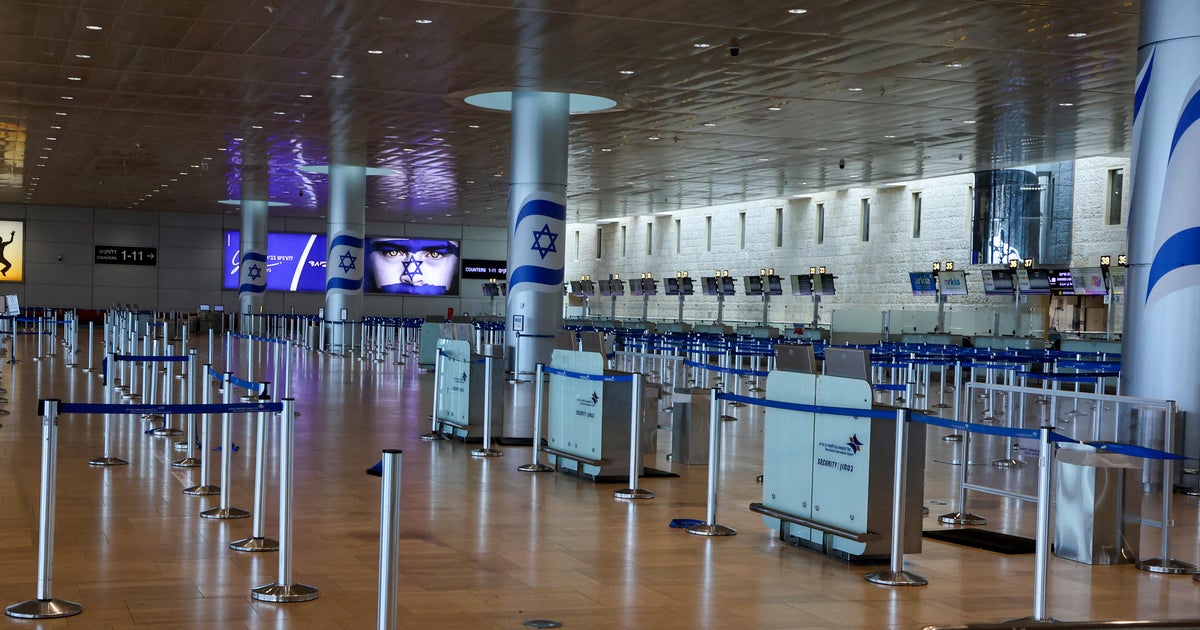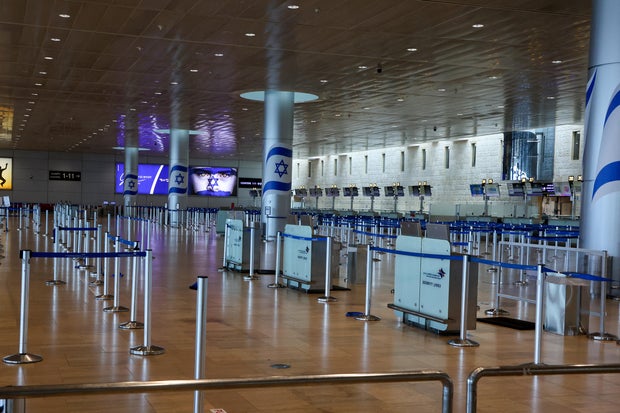Airspace was closed over Israel, Jordan, Iran and Iraq on Friday after Israel said it began a major military operation against Iran.
Tel Aviv’s Ben Gurion airport was also closed following Israel’s wave of airstrikes on Iranian nuclear sites and other targets. The airport said that due to the current security situation, all flights to and from the airport were canceled until further notice.
Israel’s Ministry of Transportation said airspace would remain closed until further notice, and that flights will have six hours’ notice before it reopens. Israel’s El Al and Israir evacuated planes from Tel Aviv. Travelers were told not to go to the airport.
The closures were affecting travelers regionwide and beyond. Several major international carriers — including Emirates, Etihad, Qatar airways and Air India, as well as the German-based Lufthansa — canceled, delayed and redirected flights.
Etihad, the national carrier of the United Arab Emirates, canceled flights to and from Tel Aviv, while Emirates canceled flights to and from Iraq, Jordan, Lebanon and Iran.
Qatar Airways temporarily suspended flights to Iran and Iraq, while Air India said several flights were diverted or sent back. Lufthansa suspended flights to Iran.
Syria’s flag carrier, Syrian Airlines, announced on Friday that it suspended its flights to the UAE and Saudi Arabia on Friday after Iraqi and Jordanian airspace were closed.
GIL COHEN-MAGEN/AFP via Getty Images
FlightRadar data showed no flights over Syria on Friday evening local time. No flights were over Lebanon, Iran or Iraq, either, but were clustered over Saudi Arabia and Egypt.
Israeli Prime Minister Benjamin Netanyahu announced on Friday that the Israel Defense Forces (IDF) had started “Operation Rising Lion” with a wave of airstrikes on dozens of Iranian nuclear sites, military commanders and research scientists. He said the goal was to “roll back the Iranian threat to Israel’s very survival.”
IDF spokesman Brigadier General Effie Defrin called the attack preemptive and said Israeli intelligence had uncovered an Iranian “plan to destroy Israel that has taken shape in recent years.”
Tehran responded by launching more than 100 drones at Israel on Friday. Iran’s President Mahsoud Pezeshkian said the country would “strongly take action” against Israel, promising “a severe, wise and strong answer.”
“The Iranian nation and the country’s officials will not remain silent in the face of this crime, and the legitimate and powerful response of the Islamic Republic of Iran will make the enemy regret its foolish act,” he said on Iranian TV.
An Israeli military official later told reporters that while the threat wasn’t over, Israel had managed to intercept many of Iran’s UAVs.
Tucker Reals and
contributed to this report.

